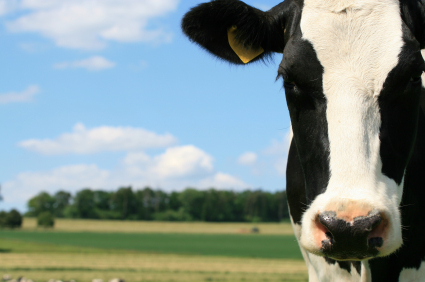Rural Self Storage: How Farms are Mooving in on the Act

If there’s one thing most people can agree on, it’s that farming is hard work. England’s countryside may be a green and pleasant land, but that doesn’t make it any easier to earn a living from it.
According to DEFRA, the typical farmer receives just £1.43 a kilo for beef and a mere 25p a litre for milk. The relentless downward trend in food prices this is a symptom of has seen many small farms close over the last ten years, with the ravages of livestock disease helping push those that were tottering over the edge.
The farms that have survived in many cases chose to diversify away from traditional farming activities, in order to provide alternative streams of income during the lean spells.
The National Union of Farmers, NUF, claim 51% of English farms have done this to some extent, generating £300 million a year for them – 10% of all agricultural income. The most popular diversified activity, their research suggests, is renting out farmland for storage space.
Self Storage to the Rescue
This seems to be a case of self storage to the rescue for many British farmers. The fact that they’re complete opposites mean the two activities complement each other well; unlike farming, storage is cheap to set-up and equip, thanks to the easy availability of shipping containers in Britain, requires little manpower to run and delivers a reliable stream of cash.
It also tends to do well in rural areas because of the unmet demand created by bigger firms focussing on cities. Large swathes of countryside – particularly Devon and Cornwall, East Anglia, Sussex and Cumbria – suffer from an extreme paucity of self storage providers, allowing farmers to benefit from the lack of competition.
Farm self storage is different in that it typically tries to engage the customer with a distinct sales-pitch from that found in urban areas.
They tend to eschew the sleek modernity which large companies try to imbue their product with, instead often emphasising the family-run nature of their business, idyllic surroundings and lack of alternative storage solutions.
They are usually also different from the typical urban firms in having staff who live onsite, usually the farmer, with the containers often being kept in a field or barn near their farmhouse.
This makes them similar to many of the small storage companies in America, where the owner’s family often lives in a dwelling amongst the units, but unusual compared to the majority of other British companies, whose staff commute to the business parks and inner-cities that house their operations.
The price is right
As might be expected given their remote locations and outdoor containers, farm self storage facilities are often significantly cheaper than those found anywhere else.
For example, 1st Chichester Self Storage in Sussex charges as little as £9 per square foot a year for an 80 sq ft unit. Farm units in Cornwall can be even cheaper: Trevella Farm near Truro offers 99 sq ft units with electricity and lighting for just £65 per month, or £7.88 per sq ft a year. By contrast, a London branch of Big Yellow will often demand at least £23 per square foot a year, simply for a basic, unlit, piece of space.
There is even a greater amount of specialisation amongst farm self storage firms than is typically found at big companies. Many often advertise both caravan and boat storage alongside normal self storage, showing both the flexibility of container storage and an awareness of rural needs. Some companies, such as Gilmorton Lodge Farm near Leicester, even offer repairs to these vehicles as well.
Despite all these advantages, there are two potential drawbacks when using farm self storage. Firstly, they are often in very remote locations, making them an impractical choice for people who live far away and need regular access to what they’re storing.
Secondly, as with other types of container storage, the range of sizes is often limited. Many firms offer only three or four different sizes, with 160 sq ft often being the upper limit. This may be too little for customers who need room for very large amounts of stuff, such as business stock.
Harvesting Growth
The development of rural self storage centres in farms has clearly been a very positive development, both for consumers to whom it was previously denied and the farmers themselves.
It will be interesting to see if, in the coming years, the large companies try taking them on in rural areas once they see the demand that exists there, or whether they will instead continue to ignore them, allowing farmers to harvest the growth in rural self storage for many more years to come.
If you run a rural self storage centre or have used one as a customer, tell us about your experiences in the comments box below.
One Response to “Rural Self Storage: How Farms are Mooving in on the Act”
Leave a Reply
Subscribe to This Blog
Get new blog posts sent to you by subscribing to RSS updates or to email updates.







As one of the Major exporters of Quality static caravans to the continent, you are in safe hands at Midland Caravans.